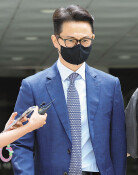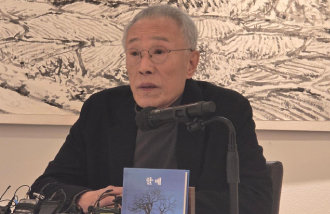Runoff system could end Korea’s unity dramas
Runoff system could end Korea’s unity dramas
Posted May. 27, 2025 07:31,
Updated May. 27, 2025 07:31
Once again, South Korea’s presidential race is being overshadowed by familiar “unity talks” among candidates. The latest episode features People Power Party (PPP) nominee Kim Moon-soo and Reform Party contender Lee Jun-seok exchanging barbs over a possible merger. Kim has appealed to Lee by citing “shared roots,” while Lee has flatly ruled out any consolidation, declaring the chance of unification “zero percent.” PPP interim leader Kim Yong-tae suggested talks could be revisited if Lee called for a purge of pro-Yoon factions. Lee responded curtly: “If there is any unification, it would only be if their candidate drops out.”
Initially, the PPP set May 25, which is the date ballot printing began, as a deadline for unification. After that passed, attention shifted to May 29, when early voting opens. Behind the scenes, the party appears to be pushing for a last-minute deal. But Lee, whose poll numbers have recently topped 10%, maintains that he has “burned the bridge to unity.”
Regardless of the outcome, the pattern is familiar: late-stage negotiations dominate headlines, while substantive debate on national priorities is sidelined. In the last presidential election, the conservative merger between Yoon Suk-yeol and Ahn Cheol-soo occurred only after the final televised debate, again leaving little room for meaningful public discourse.
This recurring spectacle underscores a structural flaw in Korea’s electoral system. Is it time for South Korea to consider adopting a runoff system like France’s? Under a two-round system, all candidates compete in the first round, with the top two advancing to a final vote. Candidates polling in third or fourth naturally align with finalists based on shared policy goals. This encourages open debate early in the campaign and allows voters to choose freely, without fearing their vote will inadvertently help their least preferred candidate.
A runoff system would also defuse the toxic notion that “a vote for A is a vote against B” and reduce the pressure for premature political deals. Most importantly, it ensures the president is elected with majority support, strengthening democratic legitimacy. Both Lee Jun-seok and Democratic Party candidate Lee Jae-myung have proposed the system as part of constitutional reform. Whether or not the issue is addressed during the campaign, serious consideration should be given to amending Article 76 of the Constitution after the election to bring Korea’s presidential race in line with global democratic standards.



![[속보]‘통일교 의혹’ 전재수 장관 사의…“직 내려놓고 허위 밝힐 것”](https://dimg.donga.com/c/138/175/90/1/wps/NEWS/IMAGE/2025/12/11/132943538.1.jpg)



